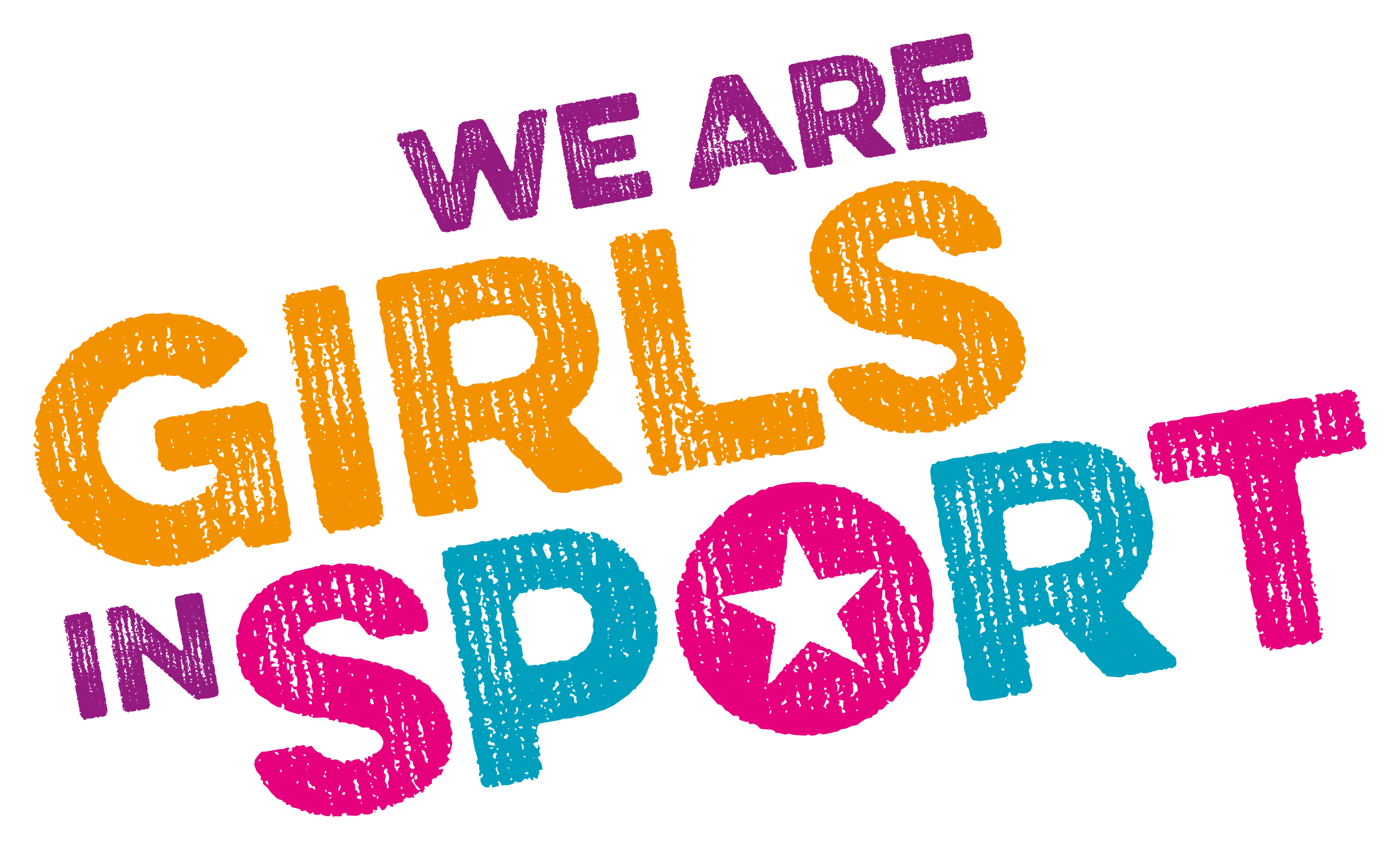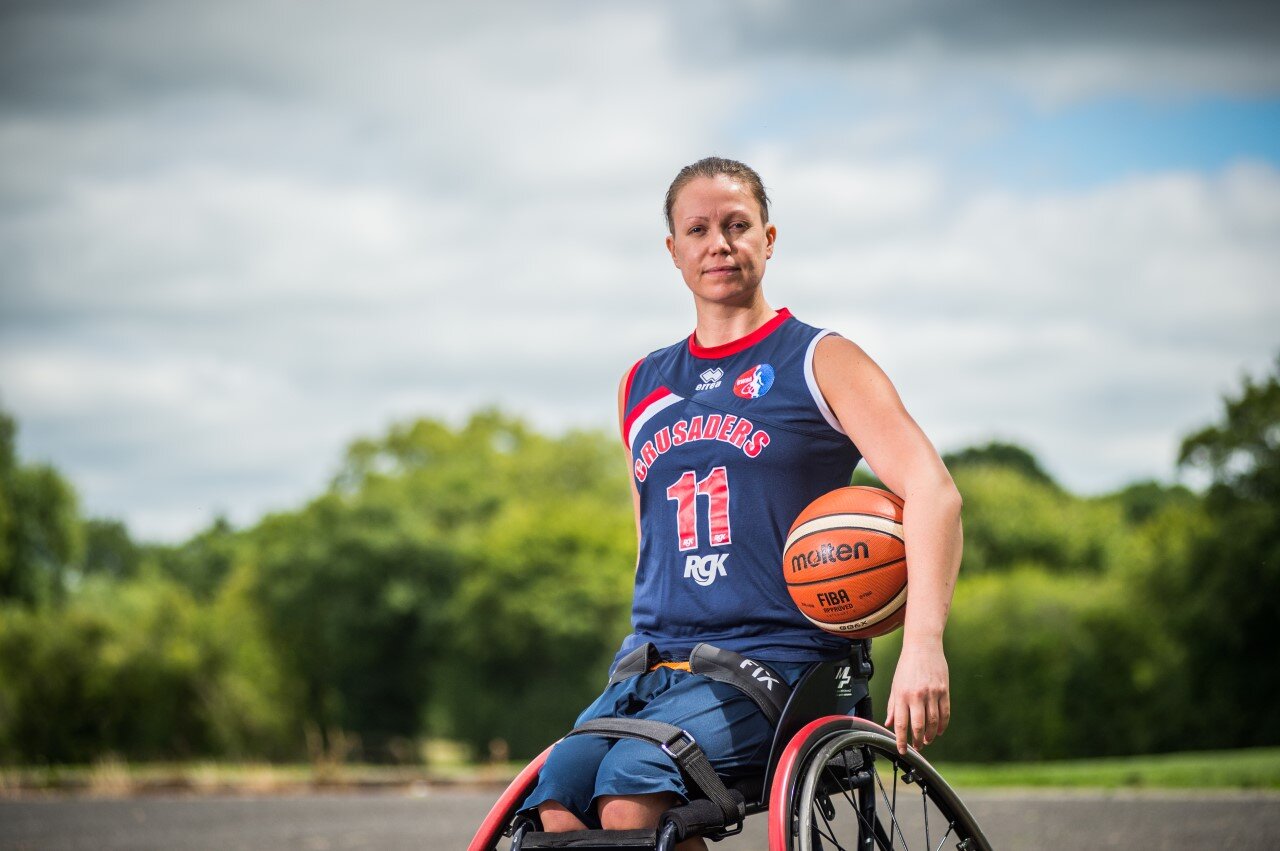Celebrating neurodiversity with Sarah Hope
Recently it was neurodiversity celebration week, and we couldn’t let it go by without celebrating neurodiverse athletes. Our aim is for any and every girl to be able to find a sporting role model – we really believe in ‘If you can’t see it, you can’t be it.’
Sarah Hope
Sarah Hope is a member of the GB wheelchair basketball team and she is autistic. We interviewed her recently to discover more about her autism, how it impacts her career as a sportswoman and the signs that coaches, parents and teachers can look out for in the children they support when it comes to neurodiversity, from Sarah’s experience. We acknowledge that neurodiversity is complex and not limited to autism – if you think that you or someone you know may be neurodiverse, please do seek professional advice.
Able-bodied until the age of around 24, Sarah was in year 5 at school (9/10 years of age) when she started to realise that she thought differently to everyone else. She recounts an incident when her group of school friends were fawning over pieces of work that they had all done, none proclaiming that theirs was the best, flattering each other and their work to make sure everyone felt included. Sarah explains that it was obvious that one girl’s piece of work was the best and she was baffled to understand why the girls weren’t just stating what to her was fact. Sarah says, ‘It was this that made me realise I’m not necessarily on the same wavelength as everyone else.’
Up until this point, there had been signs that Sarah’s brain worked differently but she hadn’t spent much time thinking about them: she found make-believe in the playground too difficult, for example, and would go and play ball sports with the boys. But after the incident comparing schoolwork, Sarah started to ask more questions of herself and relied on the internet to help her put a name to what she was experiencing.
The internet didn’t satisfy her curiosity completely and so she continued to live her life, constantly giving a performance of someone neurotypical (meaning they don’t have autism), a very common trait in autistic girls. This ‘performance’ was exhausting her: she worked so hard all day to appear ‘normal’ that by the evenings she was tired and still had lots of questions on why she felt and thought differently. She felt as though she was failing at life when seemingly everyone else found it so easy. Her family, teachers and medical professionals didn’t identify her inner turmoil and by the age of 18, her mental health started to suffer, and she experienced depression.
“It was this that made me realise that I’m not necessarily on the same wavelength as everyone else. ”
Sarah left to go to university at this stage and although she admits that many people with autism would have struggled with a change of location and change of routine, Sarah revelled in it. For the first time she could make her own decisions, she was learning about herself on her own and she started a new hobby of running. She became passionate about running, despite not coming from a sporty or active family, and it became a ‘special interest’. It was liberating to run – she didn’t need any equipment, nor a plan and it helped her to clear her head.
She became increasingly convinced that she was autistic but went for tests as an adult to have it confirmed. Sarah struggles with noise and light which means that she can struggle to focus on what you’re saying (her brain can’t ignore other sounds such as the crowd at a match or even loud air conditioning - all sounds compete for her attention) and she doesn’t like bright light – strobe lighting is ‘like being punched in the face’. But aside from those challenges, how does being autistic impact her as an athlete?
How autism impacts athleticism
‘I have no problem concentrating on one thing for long periods of time, which makes skill acquisition easier. I'm analytical and have good pattern recognition, which is handy for reviewing video of games and also for monitoring my own progress and knowing what does and doesn't work for me. Being autistic also comes with a certain amount of honesty and integrity, which is good for direct communication with my teammates (but perhaps not when they ask me my opinion on a new outfit??!).
As for the downsides, my sensory sensitivities can be a barrier. It's a loud, bright, fast-moving sport and that can lead to a certain amount of sensory overload. Add in the sensory input from being sweaty all the time, from injuries and bruises and cracked hands, and it can take time to recover from that.
Team sport can highlight the communication differences between neurodiverse and neurotypical people and, while I do my best to communicate in a way that neurotypical people are familiar with, it doesn't always work out that way. I'm also highly reliant on routine and a certain degree of predictability, which isn't always guaranteed at this level of sport, especially during covid. I think back at the same-ness that previous office jobs offered and wonder if that career choice would have been easier!’
As we have mentioned, girls are very good at covering up their autism by mimicking neurotypical behaviour that they observe in their friends. Sarah admits that she took lines from movies and TV programmes and spoke them as her own, such was the extent of her performance. So how can you spot someone who may be struggling with neurodiversity in your team?
Signs to look for
‘Things I can draw from my own experience would be an aversion to some of the sensory input (you can see it on my face when the buzzer / whistle goes off!); being anxious or uncomfortable if something new or unexpected happens, even if it's considered a positive thing or a treat - the same goes for start / end times to the session. An inability to follow a string of verbal commands - if the coach explains a, b, c, d, and e without a demo or it written down somewhere then I will really struggle. Look out for the person that waits for other people to start first so they can see and copy what they're doing!
Most things that will help out an autistic person during sport are also things that will help out neurotypical people - a clear schedule and plan for the session, physical demos of new skills and drills, the opportunity to take a break somewhere quiet if everything gets a bit much and clear language (logical and chronological descriptions, cut out the metaphors, try to avoid implied instructions - e.g., say "take a break" instead of "take 5").’
On this last point, Sarah also has alexithymia which means she can’t understand or recognise her and others’ emotions. This can translate into the day-to-day as having a delayed reaction to something someone has said. The example she gave was of a doctor having a dig at her about something which she didn’t pick up on for 30 minutes or so when she was home. She knew she felt something but couldn’t label it.
It was fascinating talking to Sarah and hearing her story. Autism has presented challenges for Sarah and continues to do so but she has learned to deal with them and have a fantastic sporting career – more than many of us achieve.
If you’re curious about why Sarah is in a wheelchair, she suffers from peripheral neuropathy, a genetic condition which means that the sensory nerves in her skin deteriorate in their functionality until they die. She experienced terrible pain in her feet and legs as the condition worsened before she started using crutches and then a wheelchair.
Thank you, Sarah, for sharing your story and good luck in the Paralympics!
All photos credit Sarah Hope



